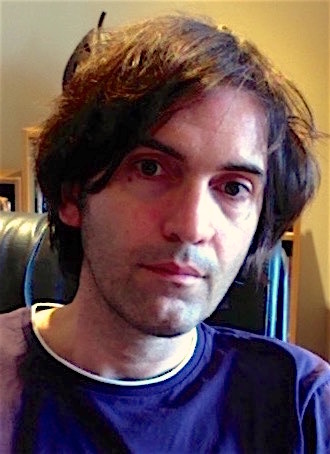

 The targeting of elite interests has been at the centre of recent sanctions policies, and will be a major strategic concern as the world responds to the Russian invasion of Ukraine. Mirko Draca, Jason Garred, and Nele Warrinnier look at the effectiveness of targeting in the case of Iran during the 2010s. They find that political elites within Iran faced a tangible economic incentive to negotiate the removal of sanctions.
The targeting of elite interests has been at the centre of recent sanctions policies, and will be a major strategic concern as the world responds to the Russian invasion of Ukraine. Mirko Draca, Jason Garred, and Nele Warrinnier look at the effectiveness of targeting in the case of Iran during the 2010s. They find that political elites within Iran faced a tangible economic incentive to negotiate the removal of sanctions.
As events unfold in Eastern Europe, sanctions have once again emerged as a central focus of global politics. World leaders have responded to Russia’s invasion of Ukraine with a sweeping range of sanctions, adding to those already imposed in the previous days. These measures have repeatedly been portrayed as ‘massive’ or ‘severe’: for example, at noon on 24 February, Boris Johnson announced the impending arrival of ‘a massive package of economic sanctions designed in time to hobble the Russian economy’.
But despite their ‘massive’ nature, another word has also been used to describe sanctions on Russia: ‘targeted’. Posting on Twitter, Ursula von der Leyen, President of the European Commission, used both words side by side: ‘Later today, we will present a package of massive, targeted sanctions’. In subsequent tweets, von der Leyen specified that sanctions would ‘target strategic sectors of Russia’s economy’, and that they would ‘weaken Russia’s technological position in key areas from which the elite makes most of their money’.
This emphasis on targeting, and specifically on targeting of the ‘elite’, is in line with a longstanding principle of sanctions policy. As stated in the European Commission’s explainer on EU sanctions policy, the EU’s philosophy is that sanctions should be ‘aimed at those responsible for the policies or actions the EU wants to influence’. The principle of elite targeting is not exclusive to the EU: also on 24 February, Justin Trudeau suggested that new Canadian sanctions would ‘impose severe costs on complicit Russian elites’, while the UK foreign secretary Liz Truss argued that sanctions would ‘squeeze Putin’s regime and all those close to him’ and highlighted the economic cost ‘imposed on the Kremlin’.
Why target the elite? The idea is that to achieve the stated goal of sanctions – ‘to bring about a change of policy or activity’, in the words of the European Commission – they must be designed to affect the decisions of individuals with political power. If sanctions can change the cost-benefit calculations of the powerful, then they might lead to policy change.
In a recent research paper, we have investigated how this might work in practice. Our study focuses on another recent ‘massive, targeted’ sanctions regime: the multilateral sanctions on Iran that preceded the 2015 nuclear deal. The sanctions were prompted by Iran’s nuclear programme, with the aim of preventing Iran from producing nuclear weapons. Like the new Russian sanctions, they included severe limitations on Iran’s international financial access, restrictions covering entire industries (such as oil and automotives), and many narrower measures such as asset freezes focused on specific firms or individuals.
In order to understand the possible role of ‘elite targeting’ of sanctions in the diplomatic negotiations leading up to the nuclear deal, we focus on two Iranian actors with significant political influence over the nuclear programme: the Supreme Leader and the Islamic Revolutionary Guard Corps (IRGC). During the negotiations, the sanctions package essentially acted as a ‘carrot’: the trade being proposed was policy change for sanctions relief. But was this incentive directly relevant for elite policymakers? What did they gain from progress towards a deal securing relief from sanctions?
Importantly, both the Supreme Leader (through an organisation known as Setad) and the IRGC are known to control substantial economic holdings. While the value of most of these assets is opaque, the key to our study is that we are aware of some assets of both organisations that are publicly traded on the Tehran Stock Exchange. This means that we can examine whether diplomatic progress resulted in a rise in the value of these holdings.
Our study finds that when negotiators moved closer to a deal, the market reaction boosted stock returns for firms owned by Setad and the IRGC. Other publicly traded firms also benefited, but to a lesser extent. For example, while companies in sanctioned industries were boosted in general by progress in negotiations, Setad and IRGC holdings in those industries saw significantly larger returns. We estimate that the interim Geneva agreement alone boosted the value of publicly traded Setad and IRGC assets by hundreds of millions of dollars. This may actually be a highly conservative estimate of their gains, because most of the economic interests of these organisations are not observed in our study.
As in Iran, most assets of the Russian elite are likely to be difficult to observe. Nonetheless, a similar approach could be used to gather some information on the effectiveness of targeting. This might involve monitoring fluctuations in the known stock-market wealth of key members of the elite when sanctions are tightened, or when diplomatic optimism rises. In the Russian case, access to amenities is another potential indicator: to what extent are the lifestyles of the elite affected by the sanctions? Such monitoring could be a long-term proposition: the gap between the initial imposition of sanctions on Iran and a diplomatic breakthrough was measured in years.
Finally, although our findings suggest that the multilateral sanctions on Iran may have create ‘targeted’ incentives for elite policymakers to negotiate a deal, we should also consider the ‘massive’ nature of the sanctions that led to this outcome. Beyond the firms listed on the Tehran Stock Exchange, there is ample evidence from other sources that the Iranian economy as a whole suffered greatly from sanctions. If they are successful, sanctions on Russia might eventually change the course of events through their impacts on the circumstances of elite influencers. They may also have the potential to ‘hobble the Russian economy’ beyond those elites.
____________________
Note: the above draws on the authors’ paper ‘On Target? Sanctions and the Interests of Elite Policymakers in Iran’, conditionally accepted in The Economic Journal.
 Mirko Draca is Professor in the Department of Economics and Director of the CAGE research centre at Warwick University. He has publlished research on a range of topics in labour economics, the economics of crime and political economy.
Mirko Draca is Professor in the Department of Economics and Director of the CAGE research centre at Warwick University. He has publlished research on a range of topics in labour economics, the economics of crime and political economy.
 Jason Garred is Assistant Professor in the Department of Economics at the University of Ottawa. His research mainly focuses on the international economic relations of developing countries.
Jason Garred is Assistant Professor in the Department of Economics at the University of Ottawa. His research mainly focuses on the international economic relations of developing countries.
 Nele Warrinnier is Senior Research Fellow at KU Leuven. Her research focuses on topics in labor economics and political economy in developing countries.
Nele Warrinnier is Senior Research Fellow at KU Leuven. Her research focuses on topics in labor economics and political economy in developing countries.
Photo by Erwan Hesry on Unsplash.







1 Comments